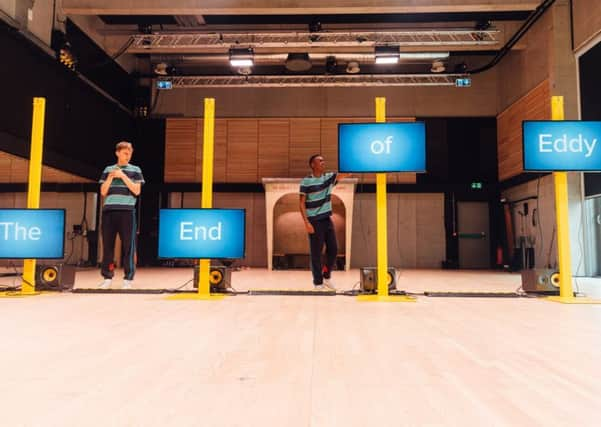Theatre review: The End Of Eddy, The Studio


The End Of Eddy, The Studio (****)
Co-produced by Untitled Projects and London’s Unicorn Theatre, this version of The End Of Eddy is partly intended for young audiences.
Designer Hyemi Shin sets it with a wonderful, rangy simplicity in the open, gym-like space of The Studio, with a tiny bus shelter to the rear (the kind of place where small-town teenagers hang out) and, to the fore, a range of four television screens showing recorded images and flashes of text which, with brilliant wit and invention, help the two actors Alex Austin and Kwaku Mills play not only Eddy – whom they both powerfully embody in different ways – but also his mother, father, and brothers, and a whole range of neighbours and schoolmates.
Advertisement
Hide AdAdvertisement
Hide AdAnd if the final message of the story is a simple one – that despite changing official attitudes, homophobia lingers on, particularly in areas where working-class men have lost so many other sources of identity and pride – then the richness of the detail with which it is told offers some unforgettable insights, making us feel as if we have spent an hour or so walking the streets of Eddy’s village, and have come to a much deeper understanding of the forces that shape its people, and their changing politics.
• Until 26 August, 2pm, 7pm